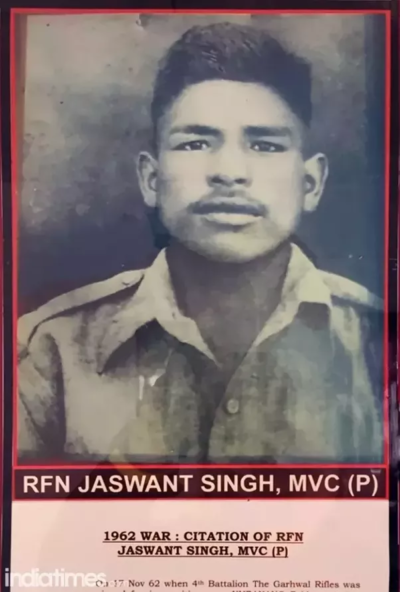As per reports, the family members of Rifleman Jaswant Singh Rawat, who was posthumously awarded the Maha Vir Chakra for gallantry, have been opposing the making of a film about him, saying the story was a violation of copyright as well as breach of their privacy.
Justice Vibhu Bakhru, before whom the matter was listed for hearing, said as there was no published work or material on the war hero’s life, the Copyright Act would not apply. Rawat was martyred during the war in 1962. How can copyright exist on the unpublished life story of an individual, even if he is a war hero, he asked the family.
The matter has however been listed for further hearing on February 21, 2018 [ Read order here] when the petitioner, the brother of the war hero, has to show what right he has to demand that the biopic should not be filmed.
The rifleman’s brother, Vijay Singh Rawat, has contended that the family’s consent was neither taken, nor was the film script provided to them or the central government which had asked for it.
As reported by me here, another PIL was filed by Samrendra Kumar last week against Sandhya Entertainment where the petitioner raised objection to the portrayal of the jawan by an actor who is accused in a rape case and is out on bail. The plea sought stopping of the shooting on the ground that a rape accused, out on bail, was portraying the role of the Army legend and that no consent had been taken from Rawat’s family or the Ministry of Defence to make the biopic. The PIL was withdrawn by the petitioner with liberty to take action in accordance with law. Read order here.
In my view, the family members of Rifleman Rawat should not have taken the plea of copyright violation. With respect to breach of their privacy, the family members would need to refer to scenes specifically violating their right to privacy or that of Rifleman Rawat.
In the case of M/S.Akshaya Creations vs V. Muthulakshmi, Veerappan’s wife had sued the producers of the film “Vana Udham” in Tamil and “Attakasa” in Kannada against portraying her and her husband, late Veerappan’s life, in any form. The Court refused to grant an injunction and held that when scenes are based on public records including the Court records, right to privacy no longer subsists and it becomes legitimate subject for comment by press and media. With respect to the right to privacy of Muthulakshmi, since the petitioner agreed to delete the marriage scenes between Veerapan and his wife (Respondent) , the court concluded as under: “Therefore, having regard to the law laid down by the Hon’ble Supreme Court in the aforesaid judgment, and having regard to the undertaking given by the learned Senior Counsel for the revision petitioners, that the revision petitioners would delete those scenes, as stated above, I am of the opinion that the right of privacy of the first respondent is in no way affected and there is no right of privacy available to the first respondent, as the Film is taken on the basis of the Police records and the first respondent has no cause of action, restraining the revision petitioners from exhibiting, exploiting the said Film.”
It would however be pertinent to note that the Supreme Court in the Right to Privacy judgement i.e. Justice K.S Puttaswamy (Retd.) V. Union of India and ors has held that “Every individual should have a right to be able to exercise control over his/her own life and image as portrayed to the world and to control commercial use of his/her identity. This also means that an individual may be permitted to prevent others from using his image, name and other aspects of his/her personal life and identity for commercial purposes without his/her consent.”
While I would be covering the topic of personality rights in a separate detailed post, the petitioner could consider taking up the argument of personality and publicity rights of Rifleman Rawat.
The Delhi High Court in the case of ICC Development vs. Arvee Enterprises & anr, has held that
“The right of publicity has evolved from the right of privacy and can inhere only in an individual or in any indicia of an individual’s personality like his name, personality trait, signature, voice, etc.
An individual may acquire the right of publicity by virtue of his association with an event, sport, movie, etc. However, that right does not inhere in the event in question, that made the individual famous, nor in the corporation that has brought about the organization of the event. Any effort to take away the right of publicity from the individuals, to the organiser {non-human entity} of the event would be violative of Articles 19 and 21 of the Constitution of India. No persona can be monopolised. The right of Publicity vests in an individual and he alone is entitled to profit from it.”
A list of judgements on personality and privacy rights can be viewed in the judgement section here.
Image source: here















